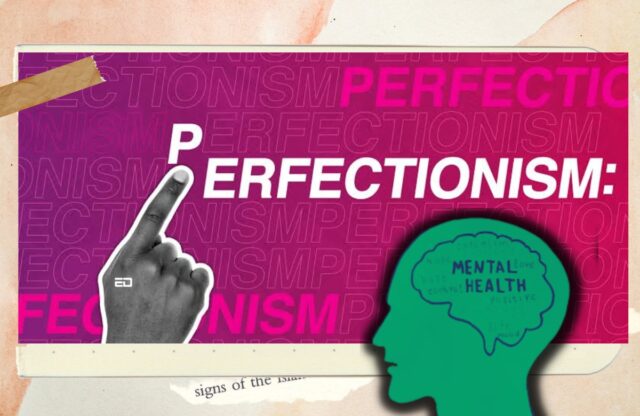Perfectionism has been a desirable trait in our society. Like Aamir Khan, everyone wants to be Mr./Ms. Perfect, in their fields. Everyone who grew up in this society often shows themselves off as perfectionists. Recently, this is being seen as problematic due to increased mental health awareness.
Past studies have found causal relationships between perfectionism and mental health disorders, like eating disorders, anxiety, and deliberate self-harm. The article published by the World Economic Forum in 2018 notes, “Irrational ideals of the perfect self have become desirable even necessary in a world where performance, status, and image define a person’s usefulness and value.”
What Is The Study?
A recent study published in the Journal of Personality and Social Psychology supports the discourse that perfectionism leads to depression in the long run and is also counterproductive.
Researchers found that perfectionism makes people miserable. It leads them to feel less fulfilled and dissatisfied in their lives. Perfectionism ultimately causes poor outcomes. This was proved through a series of 5 studies with more than 2000 participants.
India should be concerned with this study. According to WHO, one in every 20 Indians already suffers from depression. Mental anguish is one of the key reasons behind 1 student committing suicide every hour in India. This is made worse by the parenting culture in India, where every parent tries to cultivate perfectionism as a basic trait in children.
Also Read: A New Study Reveals That Stress Can Be Beneficial For Your Mental Health
Past Studies Talking About Perfectionism
The new findings serve as a link between depression and perfectionism. This connection is not new. A 2020 paper published in the Journal of Research in Personality found that perfectionism can lead people to think, feel, and behave in ways that generate stress. This leads to social disconnection eventually, resulting in depression.
Another study published in June this year in the British Journal of Psychology proposes that perfectionism might lead to the suppression of creative thinking, ultimately adversely affecting the individual’s performance.
Jean Christophe Goulet Pelletier, the lead author of the study, from the University of Ottawa explains, “Individuals should be careful not to rigidly pursue goals which leave little room for the exploration of possibilities and the expression of oneself.”
Alternative Is Excellencism
The authors of these studies advocate for “excellencism”. Excellencism has emerged as an alternative to scary perfectionism. Martin M. Smith from York St. John University, who is the corresponding author of the study, concludes, “Perfectionism is neither healthy, positive, adaptive, or functional. Rather it is a serious issue that can cause profound psychological harm. There is no pill that can treat perfectionism.”
Excellencism is all about setting achievable goals. One can engage with those goals but there is flexibility to move on to other tasks after the goals are fulfilled. A psychotherapist, Richard Brouillette, writes, “Those who strive for excellence… perform better than perfectionists. And, unlike perfectionists, they don’t end up feeling “drained and self-critical.”
Changing the narrative from perfectionism to excellencism helps the individuals to feel okay if everything is not as perfect as they wanted it to be. Excellencism helps the individual to be open to experimentation and spontaneity. A primary question arises- In India, is the parenting brigade ready to accept this?
Sources: The Swaddle, Psychology Today, World Economic Forum
Find the blogger: Katyayani Joshi
This post is tagged under: perfectionism, depression, individuals, excellencism, narrative, research, past studies, counterproductive, stress, anxiety, mental health, India, parenting, toxicity, experimentation, perfectionist, World Economic Forum, self-harm, drained, miserable
Disclaimer: We do not hold any right, or copyright over any of the images used, these have been taken from Google. In case of credits or removal, the owner may kindly mail us.
Other Recommendations:
NCERT Wants Schools To Identify Mental Health Issues Early On In Students




































